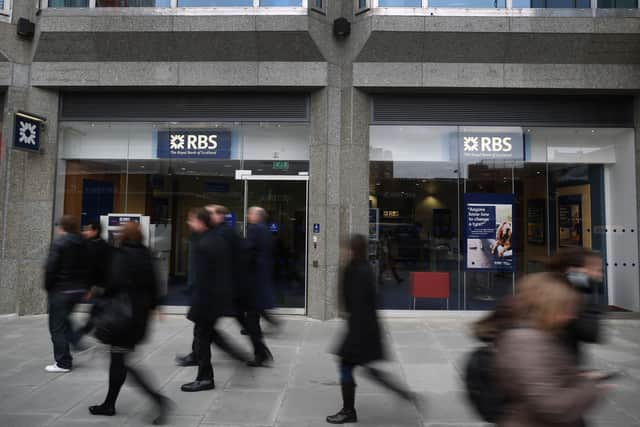May weakest month in 2023 yet for private sector growth, according to RBS
The NatWest-owned bank's latest monthly purchasing managers' index showed a slight downturn in activity last month. April had a ten-month high of 54.3 per cent growth compared to 50.7 per cent in May.
A percentage reading above 50 indicates an overall increase compared to the previous month, and below 50 an overall decrease. The indices are then seasonally adjusted, with comparable manufacturing and services indices weighted together to form a composite index, with the weights based on official value added data. However, figures in general have shown a mild expansion through the second quarter of 2023.
Advertisement
Hide AdAdvertisement
Hide AdSector data highlighted that the rate of growth in services business activity moderated on the month, while a second successive month of reduction in manufacturing new orders resulted in a fresh reduction in goods output.


Companies have reported solid rates of job-creation, but at slightly softer rates than seen in the previous survey. Firms also reported an expansion in new business during May, and the rate of growth was close to that seen in April.
Confidence levels remained unchanged from the previous survey period across Scotland during May. Businesses were optimistic of an uptick in growth in the coming year, with hopes pinned on increased client demand and resilient markets.
However, of the 12 monitored UK regions, optimism was the third weakest in Scotland, ahead of Northern Ireland and the North-east of England. Respondents also noted that higher wages, increased shipping costs, Brexit and general inflation all fed into greater cost burdens. However, the rate of growth was the softest in 24 months and only slightly above the UK average.
Judith Cruickshank, chair of the Scotland board at RBS, said: "Scotland’s private sector started the second quarter with a solid rise in output in April, but May’s data signal a loss of momentum as services growth slowed and manufacturing output fell for the first time in four months. The latest expansion in private sector output was the softest in the current sequence of expansion that began in February.
Elevated
"Inflationary pressures cooled as cost burdens rose at the softest pace in two years. Nonetheless, both input price and output charge inflation remained stubbornly elevated, and much above their respective pre-pandemic trend levels.
“On a positive note, firms continued to expand workforce numbers. Moreover, solid hiring was reported across both sub-sectors. Additionally, optimism remained strong as private sector firms anticipated growth in the coming year."
Meanwhile, the latest Business Trends report from accountancy and business advisory firm BDO has flagged that a ten-month high in the UK’s service sector output delivered a boost in confidence for businesses in May, while manufacturers battled high costs and ongoing supply-chain challenges. The firm’s Optimism Index grew for the second consecutive month to 99.75, increasing by 1.53 points to its highest reading since August 2022, when concerns of a recession first set in.
Advertisement
Hide AdAdvertisement
Hide AdKaley Crossthwaite, partner at BDO, said: “Recessionary fears were at their peak only months ago, but slowing inflationary pressures are giving businesses and their customers cause for cautious optimism. [However], all firms face a reckoning with ongoing supply-side headwinds and policymakers must hear concerns voiced around the regulation, incentives or tools businesses need.”
Comments
Want to join the conversation? Please or to comment on this article.